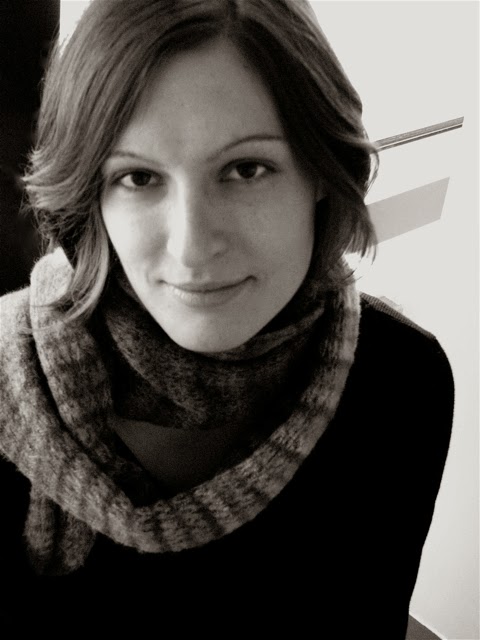In Conversation with Katia Grubisic
 |
| photo by J. Parr |
SUSAN GILLIS: How did you first come to poetry?
KATIA GRUBISIC: I only heard this story a few years ago, long after my
apparent début. Apparently, when I was about three, I marched into the living
room, planted myself there and declaimed “La nuit est noire. La nuit / est
noire.” The line break is my father’s recollection, or addition. Observed
detail with figurative implications, the undermining and expanding of
repetition…. Ta-dah!
I could very well have become a Duke of Hazzard, and now be
recounting the family lore in which Katia refused to get in or out of the car
except through the window. But I’ve had that little, inexplicable poetry elf
whispering in my ear for as long as I can remember: lines, ways of looking at
the world. I also recall that first awareness that there exists such a thing as
craft, or editing—in high school, I had an a-ha moment when a teacher suggested
a thesaurus and white space, and, later, reading closely and separating the
self from the object of the poem, which open up exciting edits. Who does the
poem want to be? Where does it want to go?
SG: You are fluent
or comfortable in more than a couple of languages. How does this linguistic
flexibility shape and influence your poems?
KG: Living in multiple languages can’t help but change not just
the way we write, but the way we are, though it’s impossible to know our
different, multiple selves. Professionally speaking, I run into it all the
time—fighting for a borrowed neologism in an article, trying to convince myself
that a gallicism will be understood in a translation when I’m really just being
lazy, forgetting words at readings because another language clearly does it
better… I try not to dissect the genesis of poems, but I think the multiple
linguistic layers are most present at the early stages, when opposite meanings,
similar words, or even just echoes that only I apparently hear, pop up. In What
if red ran out, for instance, there is a poem called “Loose Rope
Tantrum,” about a tightrope walker. In Spanish, cuerda floja literally means loose rope, which got me, and the
poem’s tightrope walker, going. Of course, you don’t have to actually speak a
language to have meaning sparked that way, and, in any event, most of those
sparks are indiscernible by the time a poem is fully on fire.
SG: What are you
reading now?
KG: My pile includes a Williams Carlos Williams selected to
which I’ve kept returning, and Steven Heighton’s recent collection of short
stories, The Dead Are More Visible.
And I love, love Colum McCann, but for some reason haven’t really been able to
get into his last novel TransAtlantic.
Also a bunch of books on torture, violence and martyrdom.
Katia Grubisic is a writer,
editor and translator. Her work has appeared in
various Canadian and international publications, and her collection of poems
What if red ran out won the Gerald Lampert award for best first
book. Read her poem "Paradise, Dam, North Shore" here.